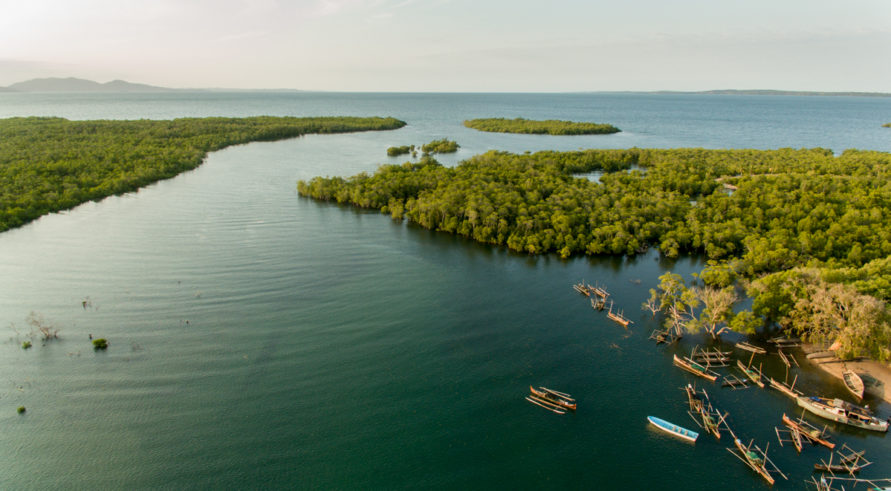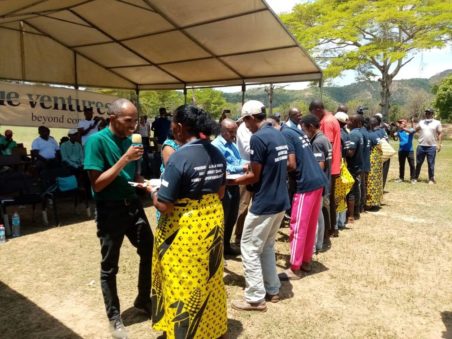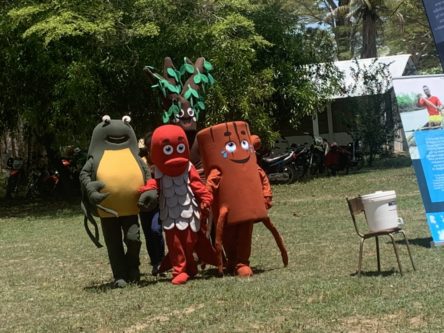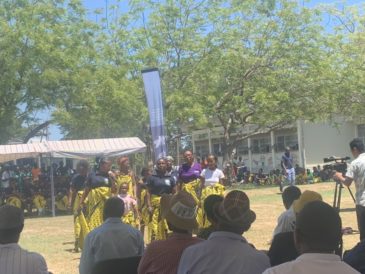As a marine ecologist and self-acclaimed nerd, I get excited when I see a graph, especially one charting fish abundance or coral cover. But there are myriad ways to share tales of change beyond data, especially where numbers don’t convey the whole message. Music also has the power to tell a story, transport us and make us feel in ways that data cannot.
I recently visited one of our sites in northwest Madagascar, almost 15 years from the day I first travelled to the country, to attend a natural resource management transfer (TGRN) ceremony, whereby the regional government handed over local resource management rights to the communities. For some, this will be for three years, while others will maintain these management rights for the next decade.
During the event, a group of women from one of the communities (comprising fishers, a community health worker, a buyer, and members of the management committee) performed a song they had composed about working with Blue Ventures, the challenges and issues they have faced over the last decade and their courage to continue to get to this point.
It was more the words, and the story they told that moved me so much than the fact that they were singing about Blue Ventures. Through song, the women described feeling supported to achieve their own goals and realising that our work is not only about implementing projects but building the strength of communities to deal with threats facing their marine resources. The message goes deeper as they sing that despite the struggles and conflicts they have faced as a community, they feel prepared and supported to continue the work far into the future.
This group’s song showed the human emotion, passion and understanding felt by these women and other members of their communities, unlike any graph. As I stood and listened to their voices, I felt goosebumps rise on my arms, a lump well up in my throat, and tears prick my eyes.
Sometimes working in community conservation is hard, and you wonder if anything is really changing. But at that moment, I realised that despite the setbacks and the struggles, we are really supporting these communities to not only put in place fisheries and mangrove management measures but to realise their own strength of coming together and achieving their own goals, despite some failures along the way. And, as these women and their families face an increasingly uncertain future in the face of climate change, it has never been so important to share their voices and the stories they can tell about everything they have achieved and hope to achieve.









